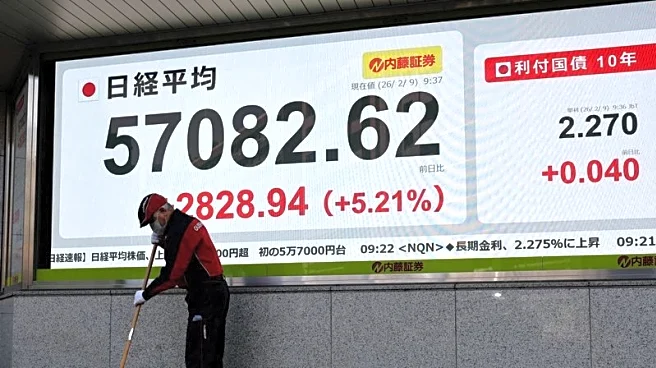What's Happening?
The Social Security Administration (SSA) is set to distribute benefits checks to millions of Americans as part of its November payment schedule. On Wednesday, November 19, payments will be issued to recipients
whose birthdays fall between the 11th and 20th of the month. This follows the previous payment run on November 12, which covered birthdays from the 1st to the 10th. The SSA's distribution schedule is based on the birth date of the worker whose Social Security taxes have accumulated the benefits entitlement. Additionally, Supplemental Security Income (SSI) recipients, who typically receive payments on the first of each month, were paid early on October 31 due to the month starting on a Saturday.
Why It's Important?
The timely distribution of Social Security benefits is crucial for the financial stability of millions of Americans, particularly retirees, disabled individuals, and survivors who rely on these payments for their livelihood. The SSA's ability to maintain its payment schedule despite a recent government shutdown underscores the importance of mandatory funding through the Social Security Act, ensuring uninterrupted support for beneficiaries. The average monthly payment for retired workers is $2,008.31, with a maximum of $5,108, highlighting the significant role these benefits play in the economic well-being of recipients.
What's Next?
Looking ahead, the SSA has announced a 2.8% increase in monthly payments starting January 2026, as part of its annual cost-of-living adjustment (COLA). This adjustment will result in an average monthly increase of $56 for Social Security retirement beneficiaries. The SSA continues to transition to electronic payments, with most beneficiaries now receiving their checks via direct deposit or the Direct Express Card, a debit card for those without bank accounts. This shift aims to streamline the payment process and enhance security.
Beyond the Headlines
The SSA's commitment to electronic payments reflects broader trends in financial technology and digital banking, potentially reducing administrative costs and improving efficiency. The agency's ability to maintain operations during a government shutdown also highlights the resilience of essential services funded through mandatory appropriations, ensuring that vulnerable populations continue to receive necessary support without disruption.









